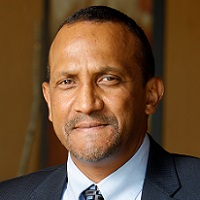 By Sagran Moodley, SVP, Chief Innovation and Technology Officer, Ontada
By Sagran Moodley, SVP, Chief Innovation and Technology Officer, Ontada
LinkedIn: Sagran Moodley
X: @OntadaOncology
Since the early ’90s, the healthcare industry has navigated the waves of electronic health record (EHR) adoption, adapting to various certified solutions and vendors. In oncology, where complexity and stakes are exceedingly high, the utilization of oncology-specific EHRs should be viewed as a requisite for excellence in care.
Empowering Oncologists with Tailored Technology
Cancer care’s intricacy, with its myriad types and behaviors, emphasizes the need for oncologists to leverage more specialized oncological tools. The rapid advancements in genomic testing and personalized treatment options necessitate an intelligent integration of multi-omics data, an umbrella term consisting of data generated from genome, proteome, transcriptome, metabolome, and epigenome. Oncology-specific EHRs adeptly converge complete genomic profiles, detailed imaging data, and rich clinical records to empower clinicians with a comprehensive view of each patient’s unique cancer battle.
The modular approach of general EHRs may suffice for broader hospital needs, but oncology requires a laser-focused system. Specialized EHRs, such as those created by oncologists, for oncologists, offer in-depth functionality, reflecting the unique workflow of the oncology field. This specificity enables oncologists to navigate the nuances of their specialty without the distraction of irrelevant features.
Consider the intricate process of ordering chemotherapy. An oncology-specific EHR system seamlessly facilitates the ordering of complex regimens by integrating pharmacy review, preparation, and mixing protocols, alongside a rigorous nurse double-check process. This helps to ensure that the right drug is administered to the right patient at the right time.
Tailored to the rich intricacies of oncological care, these oncology-specific EHRs eliminate irrelevant features, focusing instead on detailed clinical insights and pertinent use cases ─ elements critical for the precision required in oncology. For example, data points like disease stage, biomarker profile, treatment intent, and Eastern Cooperative Oncology Group (ECOG) performance status are indispensable for research but may be overlooked or underrepresented in general EHRs.
EHRs that hone in on oncology enhance care delivery by distilling patient data and medical information essential to the field. This focus helps reduce administrative burdens, facilitates more effective treatment planning, and – ultimately – supports better patient outcomes.
Enabling Precision Medicine at the Point of Care
Oncology-specific EHRs play a pivotal role in the practical application of precision medicine, which takes into account individual genetic, environmental, and lifestyle factors as well as social determinants of health. By providing access to the latest real-world evidence and data-driven insights, these systems ensure that oncologists can deliver personalized care across all cancer types, backed by current evidence-based guidelines and real-time updates.
For example, the National Comprehensive Cancer Network (NCCN) publishes evidence-based treatment guidelines that are updated frequently. By embedding these updates into the EHR in real-time, new groups of patients may be eligible to receive more precise therapies. Nivolumab (Opdivo) is a good example as it is approved for a specific stage of melanoma. Another example is Amivantamab-vmjw (Rybrevant), which is used to treat patients with progressive non-small cell lung cancer who have a specific mutation. Rapid dissemination of these latest recommendations enables oncologists to tailor care by leveraging new scientific advances and emerging biomarkers.
Conclusion
The landscape of oncology is ever-changing, with continuous updates in disease understanding, treatment methodologies, and biomarker research. Equipping oncologists with the tools that reflect the depth of their field is not just about keeping pace – it’s about setting new standards of care. Oncology-specific EHRs are not just technology; they are partners in the mission to deliver the best care possible. As we forge ahead, it’s clear that for the field of oncology, the future lies in embracing technology made by oncologists, for oncologists.
